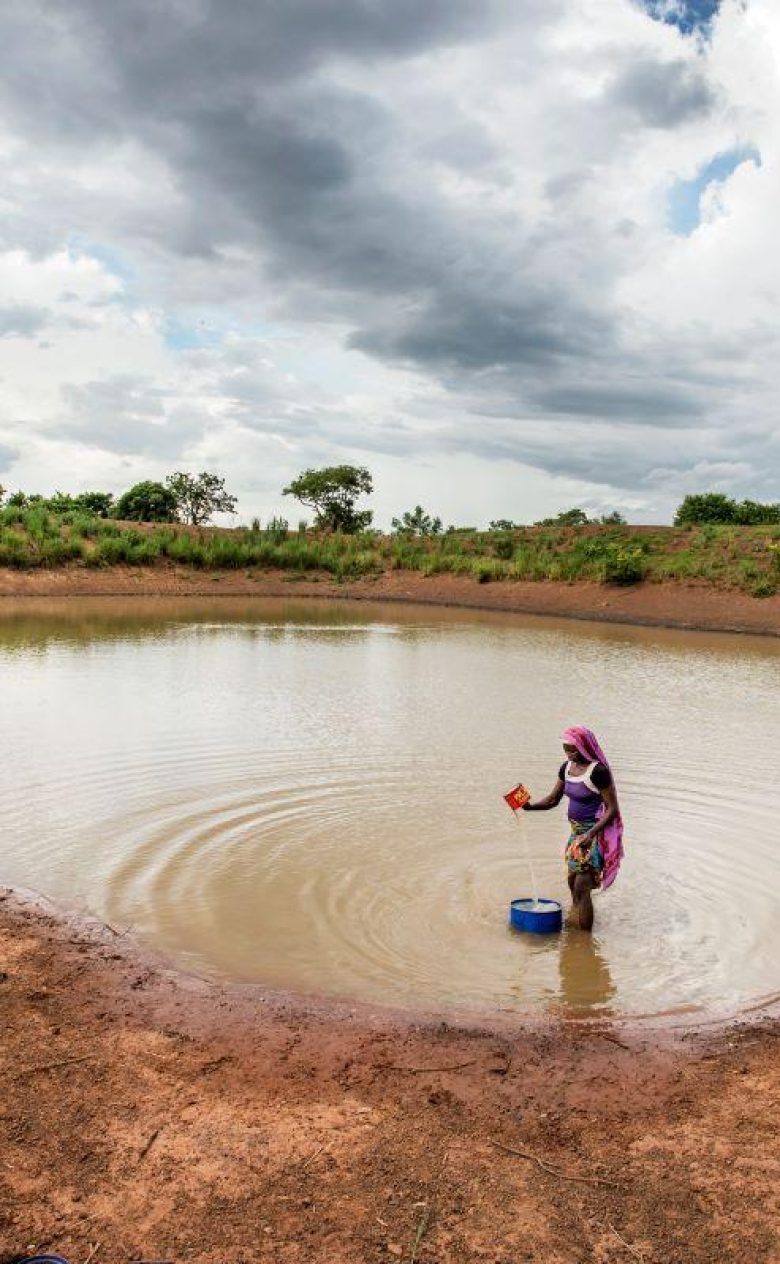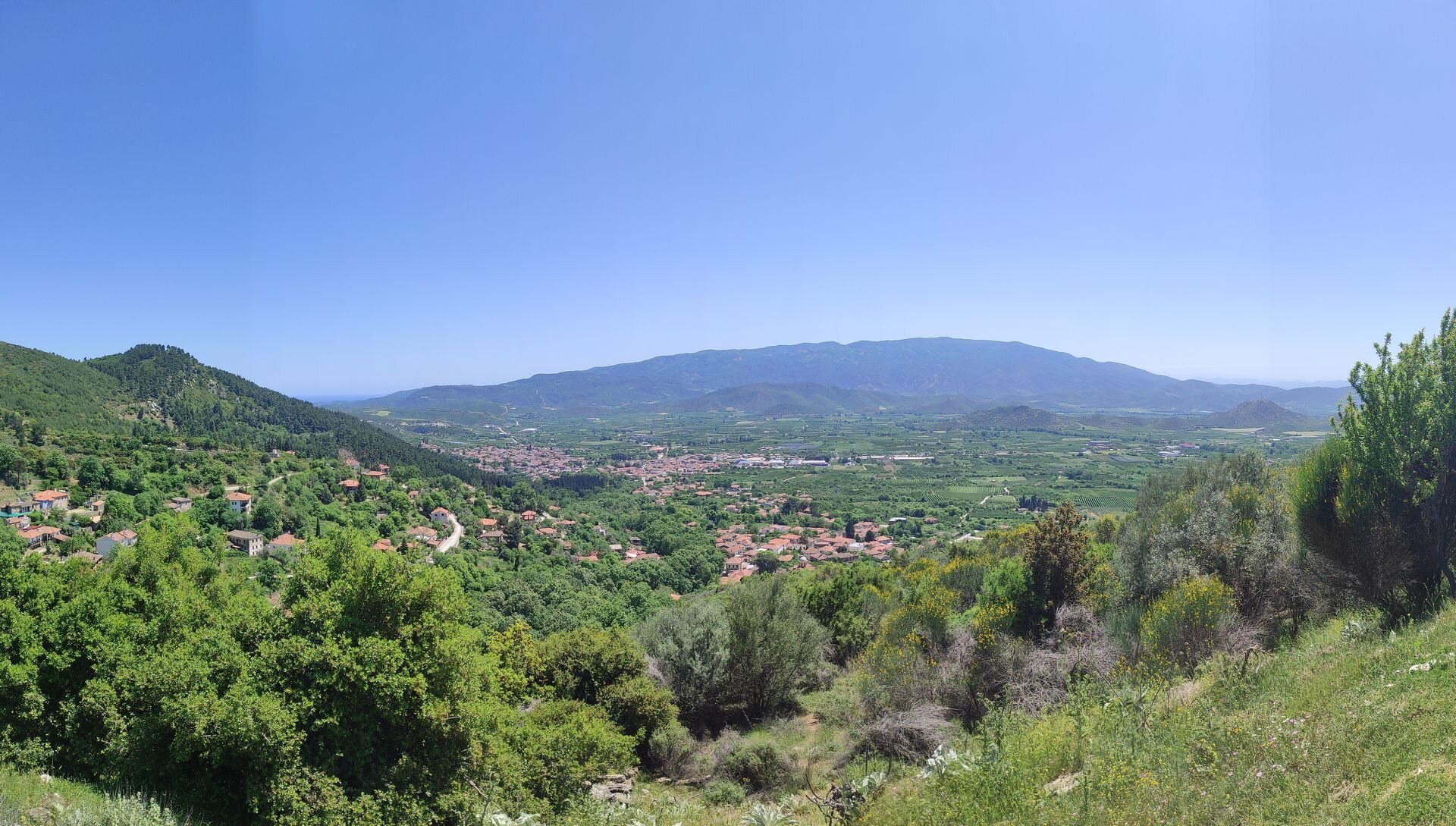Ecology, water, energy and food: how to get the balance right
How can we combine knowledge about ecosystems, water, energy and agriculture in such a way that prospects for the future improve? Population growth in the future, improved living standards in many countries, and transitions due to climate change are pushing up demand for water, energy and food. In some cases, this leads to conflict and insecurity, and therefore threatens peace. Achieving water, energy and food security depends on the quantity and quality of valuable ecosystem services and biodiversity, and it should therefore be at the heart of every decision.

The UN has calculated that the planet will be home to approximately 9.7 billion people by 2050. That alone leads to higher demand for water, food and energy. Demand for energy is expected to grow by 80%, for food by 60% and for water by 55%. These developments put additional pressure on the ecosystem, with shortages, pollution and biodiversity loss as a result.
Water, energy and food are intimately connected. For example, the production of both energy and food consumes large amounts of water and therefore directly competes for scarce water in many regions in the world: food crops compete with fodder crops and other crops for land; energy is required to extract and treat water and transport both water and food. These links mean that increased demand in the three sectors is likely to result in increased competition for scarce resources, and that interventions in one sector may have implications for the other sectors.
The Water-Energy-Food-Ecosystem (WEFE) nexus: interdependence and the search for security
Balancing these demands and achieving water, energy and food security makes it important to understand the interdependencies between water, food, energy and ecosystems, including synergies, trade-offs and conflicts. This requires a comprehensive and integrated approach. The Water – Energy – Food - Ecosystem (WEFE) Nexus has emerged in response to this requirement, integrating management and governance across sectors and scales. In this approach, ecosystems and biodiversity provide valuable services that underpin WEF security and play a key role in the quality and quantity of the related services and in supporting livelihoods.
The WEFE Nexus approach supports the formulation of management plans for natural resources: is there a strategy, innovation or intervention that provides more WEFE security, minimises trade-offs and maximises synergy? So far, research has focused more on understanding and improving conceptual frameworks, and less on the quantification of the WEFE interdependencies. Deltares, with its knowledge of the water and soil system, provides the information needed here at both the global and transnational levels. We bring water resources system knowledge together in methods and tools.
You have not yet indicated whether you want to accept or reject cookies. This means that this element cannot be displayed.
Or go directly to:
With strategic partners, there is enough nexus knowledge
Deltares answers many local and global questions involving water, soil and ecological issues at different time scales. We use specific knowledge, software and tools for this purpose and we are therefore constantly developing them further. Examples include Wflow, iMOD, and RIBASIM, which assess water and groundwater flows, as well as the allocation of water. Our tools and extensive knowledge help us to understand some of the main water-related challenges in the fields of agriculture and energy. These results are very useful in the WEFE Nexus approach. We use metamodels and dashboards to make the synergies and trade-offs between sectors clear and transparent.
In some cases, specific knowledge about energy and agriculture comes from our strategic partners, such as the Dutch institutes TNO, WUR and IHE, but also international partners. Working together, we therefore have the most up-to-date knowledge to address nexus questions.
That combined knowledge of Deltares and its partners also contributes to peace and stability worldwide. In countries that want to become independent of food and energy imports, but where this ambition puts more pressure on the ecosystem. Or in areas where people are already suffering from extreme water scarcity against a backdrop of political instability and flows of refugees. Accordingly, efforts to address water-related insecurities and conflict also need to go beyond simple one-dimensional interventions. They need to understand and build on the different elements that link water to its different uses (agriculture, energy), and ultimately to conflict, and target the elements that result in the most timely and effective conflict prevention, mitigation and resolution. Responding to water-related challenges, and addressing food or energy insecurity in an integrated way, often require collaboration between different stakeholders at the local level as well as between different countries at the international level – in the water sector itself and beyond.
Importance for Europe
It should be pointed out that these dilemmas also affect Europe as a whole. For example, the Lower Danube basin is an important European wetland ecosystem that lost nearly 80% of its wetlands last century due to river dredging, land reclamation and flood control. In the past, it used to be one of the most productive parts of Romania, with lakes, multiple floodplain wetlands, channels and other features providing a variety of habitats and services for the local population. Interventions since 1960, including hydropower plants, have led to severe bank erosion, floods and droughts, and effects on sediment balance, shipping, and the existing natural ecosystems and economic activities (such as agriculture, aquaculture and forestry).
Another example is the Pinios River Basin in Greece, which is one of the country’s most productive basins. There is a high water consumption and groundwater over-abstraction for irrigation (irrigation consumes more than 90% of the total water supplies). Recently, increasing energy costs for the operation of pumping and irrigation systems have contributed to nexus challenges. Environmental flow is not satisfactory in the middle and downstream river sections. The river flow is completely interrupted during the summer months by temporary structures in the lower catchment.
This approach also helps to establish the scientific basis for policy development in the Netherlands, for example in the horticultural sector, with its high levels of technology, innovation and international competitiveness. Greenhouses are key for this sector. Due to climate conditions, and criteria for food and product quality, these greenhouses require the intensive use of resources in terms of energy, water, climate regulation, environment and labour. In order to remain competitive, efficiency and continuous efficiency improvements in the use of these resources are essential. In addition, most of the products of the Dutch horticultural sector are energy-, water- and nutrient-intensive. Depending on the crop, greenhouses may be heated, and they may use assimilation lighting and additional CO2 fertilisation.

Nexus approach to global sustainable development
We see the nexus approach as an important step on the road to implementing the UN global sustainable development agenda – the Sustainable Development Goals (SDGs 2, 6, 7 and 15) – and the agreement adopted at the COP 21 Climate Change Conference in Paris (on greenhouse gas reduction, renewable energy generation and adaptation to climate change impacts). The role of water, soil and ecosystems is essential here, as is the careful consideration of how we use those assets.
The nexus approach also requires an ongoing dialogue with stakeholders throughout the project, and therefore realistic and inclusive solutions.
Reinaldo Penailillo Burgos, expert water resources and delta management

